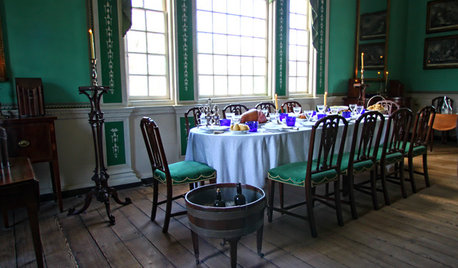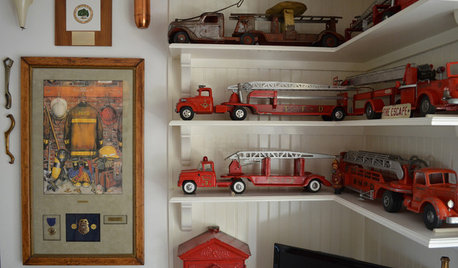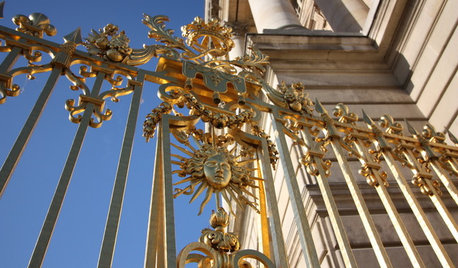Is My Search for a Good History Book Over?
16 years ago
Related Stories

TRADITIONAL ARCHITECTUREHow to Research Your Home's History
Learn what your house looked like in a previous life to make updates that fit — or just for fun
Full Story
COLORWhen Color Could Kill: Stories From the History of Paint
Delve into paint's storied past — what you learn about its history and modern incarnations may surprise you
Full Story
HOUZZ TOURSMy Houzz: History Resonates in a New Washington Farmhouse
Sentimental memorabilia join reclaimed pieces to create a warmly personal home for a family
Full Story
FURNITUREAntiques Shopping? Let Love Guide Your Search
If discovering aged treasures is your passion, you’re not alone. Find a kindred spirit and his buying tips here
Full Story
HOUZZ TOURSMy Houzz: History and Charm Infuse a California Hilltop Home
They've lived almost 50 years in one home, but this constantly renovating couple has design tastes that don't stand still
Full Story
FARMHOUSESKitchen of the Week: Renovation Honors New England Farmhouse’s History
Homeowners and their designer embrace a historic kitchen’s quirks while creating a beautiful and functional cooking space
Full Story
KITCHEN DESIGNKitchen of the Week: Period Details Keep History Alive in Portland
Modern functionality and doubled square footage bring a 1910 kitchen into the present while respecting its past
Full Story
HOUZZ TOURSHouzz Tour: Updates Honor a 1930s Cottage's History
The facade stays true to the original, but inside lie a newly opened layout, higher ceilings and 600 more square feet of space
Full Story
DECORATING GUIDESA Short History of the Sunburst Mirror
Learn the origins and uses of this popular, captivating home decor item
Full Story
LIFEGive Your Home a History by Telling Your Story
Share your family's epic saga — or even just kiddie doodles — for a home that's personal, meaningful and inspiring
Full StorySponsored
Industry Leading Interior Designers & Decorators in Franklin County




cindydavid4
veerOriginal Author
Related Discussions
Great Book on Knitting History
Q
My annoying search for an iron is over.
Q
Searching for old book of recipes, history, etc.
Q
Books on Japanese culture, history?
Q
friedag
veerOriginal Author
woodnymph2_gw
cindydavid4
madcity
friedag
sarahk_ponygirl
veerOriginal Author
cindydavid4
grelobe
veerOriginal Author
ginny12
woodnymph2_gw
veerOriginal Author
rosefolly